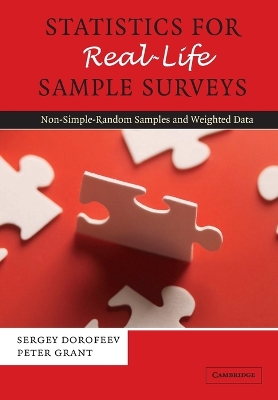Samples used in social and commercial surveys, especially of the general population, are usually less random (often by design) than many people using them realise. Unless it is understood, this 'non-randomness' can compromise the conclusions drawn from the data. This book introduces the challenges posed by less-than-perfect samples, giving background knowledge and practical guidance for those who have to deal with them. It explains why samples are, and sometimes should be, non-random in the first place; how to assess the degree of non-randomness; when correction by weighting is appropriate and how to apply it; and how the statistical treatment of these samples must be adapted. Extended data examples show the techniques at work. This is a book for practising researchers. It is a reference for the methods and formulae needed to deal with commonly encountered situations and, above all, a source of realistic and implementable solutions.
- ISBN13 9780521674652
- Publish Date 27 July 2006 (first published 1 January 2006)
- Publish Status Active
- Out of Print 23 February 2023
- Publish Country GB
- Imprint Cambridge University Press
- Format Paperback (US Trade)
- Pages 276
- Language English
